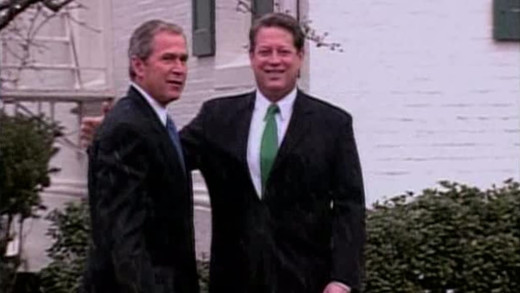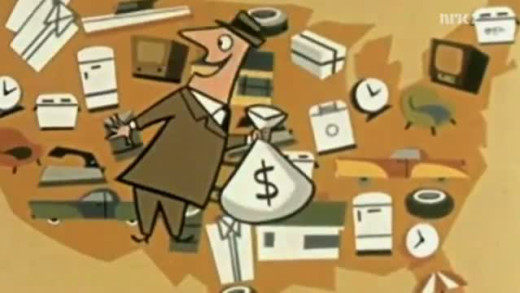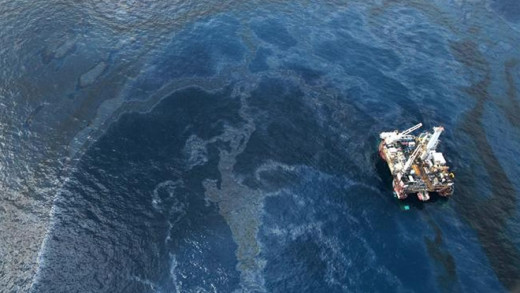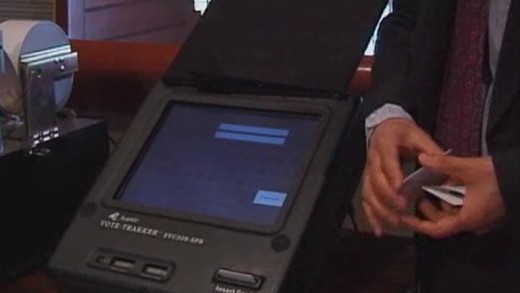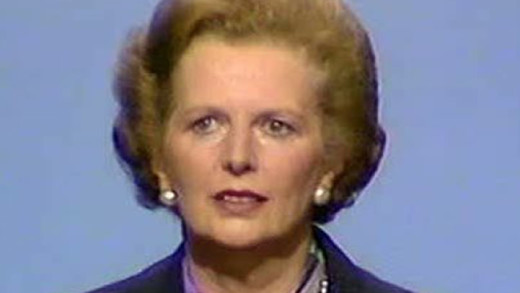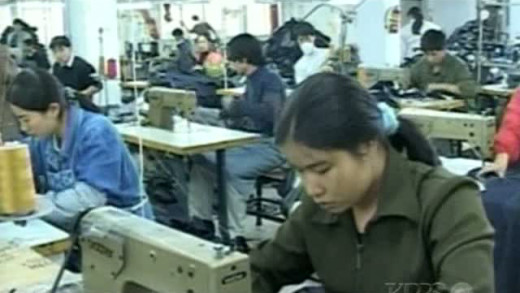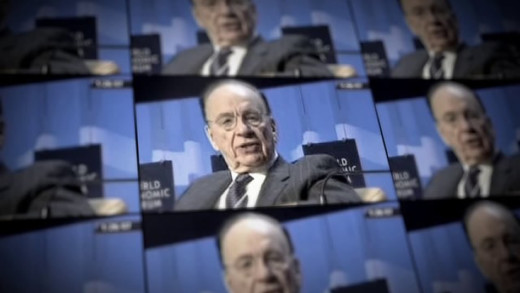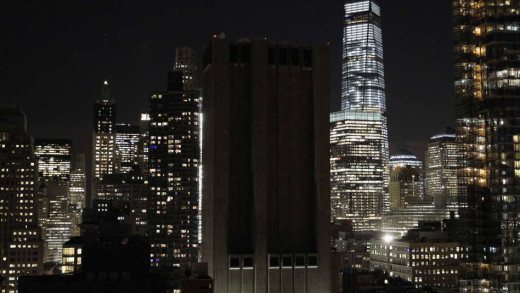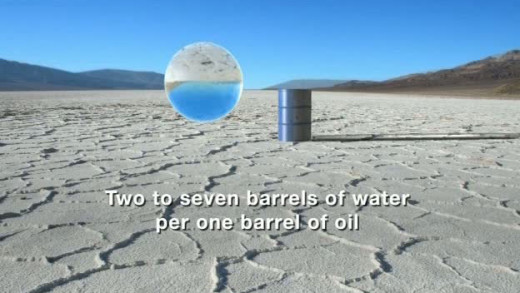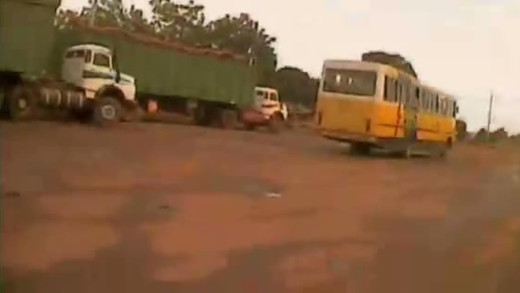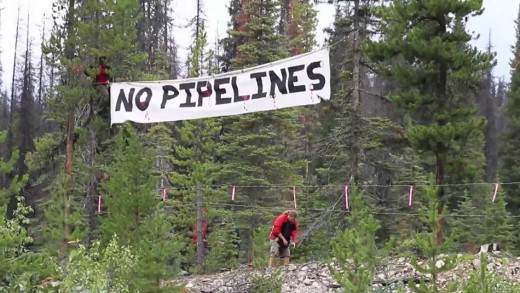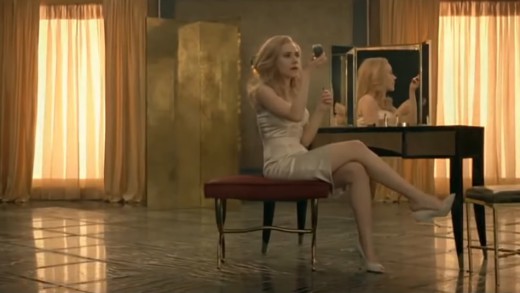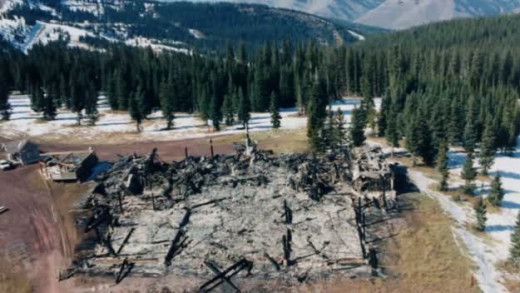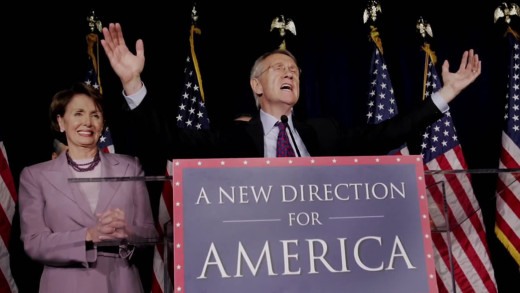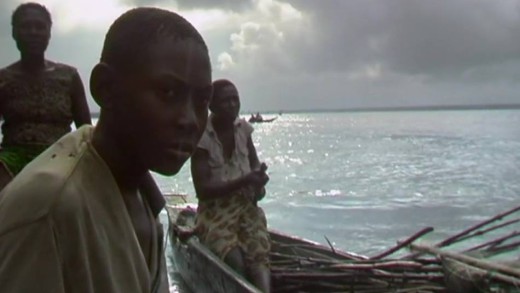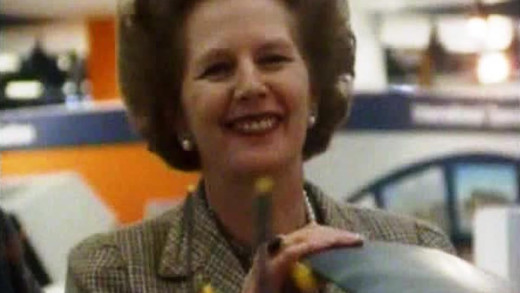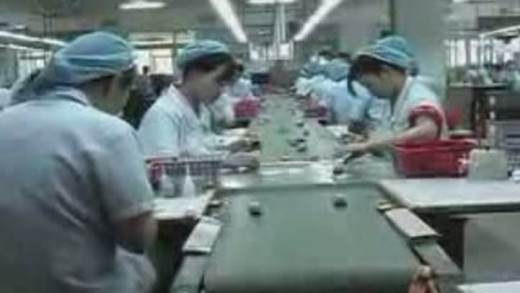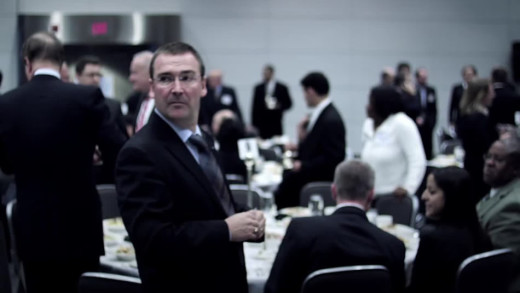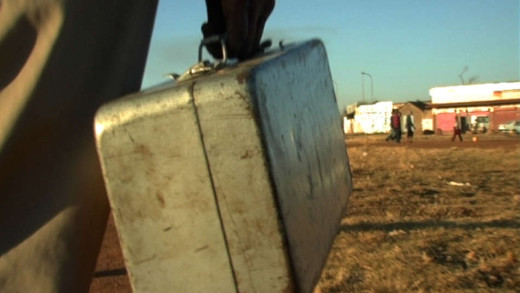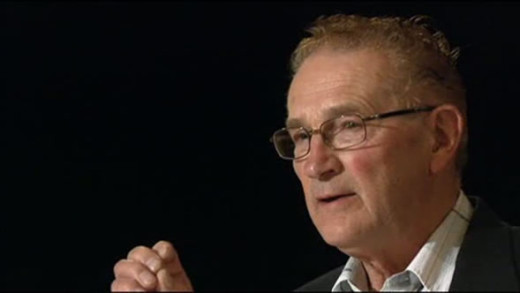Filmed over three years, Hacking Democracy documents a group of American citizens investigating anomalies and irregularities with the electronic voting systems used during the 2000 and 2004 US Presidential elections. The investigation revolves around the flawed integrity and security of the machines, particularly those made by the Diebold corporation. Could the elections have been rigged?
The Light Bulb Conspiracy investigates the history of Planned Obsolescence--the deliberate shortening of product life span to guarantee consumer demand--by charting its beginnings in the 1920s with a cartel set up expressly to limit the life span of light bulbs, right up to present-day products involving cutting edge electronics such as the iPod. The film travels to France, Germany, Spain and the US to find witnesses of a business practice which has become the basis of the modern economy, and brings back graphic pictures from Ghana where discarded electronics are piling up in huge cemeteries for electronic waste, causing intense environmental destruction and health problems.
On April 22, 2010 the Deepwater Horizon offshore drilling rig, run by oil giant BP, sunk into the Gulf of Mexico--creating the world's biggest and most catastrophic environmental crime in history. After over 750 million litres of crude oil and millions of litres of the chemical dispersant Corexit dumped into the sea, the disaster was deemed over and all damage repaired. This is bullshit however. Film-makers Josh and Rebecca Tickell travel to the Gulf of Mexico to document first-hand the extent of environmental and community damage, continuing many years after the explosion. Beginning by tracing BP’s origins and fingerprints across decades of US manipulation in Iran, The Big Fix assembles an indictment of this monumental disaster by unpacking the workings of the complex oligarchies that put pursuit of profit over all other ends...
Unprecedented looks at voting irregularities in the controversial presidential election in the United States from the year 2000. With a focus on the swing state of Florida, the recount, the ensuing supreme court decision in December, and future elections; the film also shows how fundamentally, many people--the majority being African-American--have outright been refused the ability to vote by a clever mix of legalese, electronic voting machines, political maneuvering and simple racism. A 1868 law prevented felons from voting--originally crafted to keep blacks from the polls in the wake of the Civil War--was resurrected in 2000, used to create a computerised list of people supposedly illegible to vote. The list had weird parameters and included as many as 57,000 to 91,000 non-felons; overwhelmingly targeting people of colour. On election day, these people were turned away at the polls. The role of electronic voting machines is also examined, as they are totally unaccountable and do not allow audits. The argument is made because of copyright over the software and trademarks. The machines also do not give paper receipts, so there is no physical evidence in case of the need for a recount. How does the United States--the so-called and self-proclaimed world-famous democracy--fair as one in light of this?
Invasion is a short film about the Unist’ot’en camp, where Wetʼsuwetʼen First Nation peoples have been living on their traditional unceded territory since time immemorial, only to face repeated threats in the past decade by the Canadian government and corporations that are relentlessly pushing to install oil pipelines and other extractive industries on their land. Wetʼsuwetʼen feel they have a sacred duty to protect their land from harm and preserve it for future generations, and so formed the Unist’ot’en camp to resist the colonisers and their destructive ways. Located 1,200 km from Vancouver, the camp is on the shores of the Wedzin Kwah and mouth of Gosnell Creek, as a healing space for Indigenous people and settlers alike, and an active example of decolonisation and resistance.
The Mayfair Set is a four part series that studies how capitalists overtly and surreptitiously came to prolifically shape governments during the 1980s, epitomised by the Thatcher government in Britain at the time. But the corporate influence of political power doesn't simply arrive, it rather culminates after decades of engineering rooted in the economic collapse from the aftermath of the Second World War. This series focuses on the unreported and almost unseen approach that capitalists have taken since the 1940s to gradually take control of the political systems of not only the United States and Britain, but elsewhere around the world—exemplified by the boom of globalisation.
Shot clandestinely at a blue jeans factory in southern China where a young girl and her friends work around the clock for pennies a day, China Blue reveals what international retail companies don't want us to see: how the clothes are actually made...
Ninety percent of American media is controlled by five big, for-profit-conglomerates, creating a media monopoly of informational and social control never before possible. The overwhelming collective power of these firms raises troubling questions about democracy. Using a handful of in-depth cases out of a vast array of examples, speaking with renowned journalists, activists, and others, Shadows of Liberty reveals the hidden machinations of the news media, drawing into focus the vast mechanisms of censorship, cover-ups, and corporate control that have been built up over many decades. Journalists are prevented from pursuing controversial news stories, people are censored for speaking out against abuses of government power, and individual lives are shattered as the arena for public expression has been turned into a vessel for advertising, warmongering and distraction. Will the Internet remain 'free', or succumb to the same control by the same handful of powerful, monopolistic corporations--as we see?
Ammo for the Info Warrior is a two part series of collections of short films by the Guerrilla News Network (GNN), an independent news organisation with a mission to expose young people to important global news and information free from corporate filters. Each part consists of a selection of 5 to 10 minute videos covering a range of stories, from the violent diamond trade in Sierra Leone; to the PR industry's manipulation of public opinion; to analysis of IBM and its role in the Holocaust; to CopWatch, a movement of people keeping police accountable; and short slam poetry clips about the business of hip-hop. Ammo for the Info Warrior experiments with format with the aim of being an innovative educational tool to tackle serious socio-political issues for a generation brought up on MTV. It can be a catalyst for discussion and debate, encouraging the viewer to develop skills in critical thinking and analysis.
Project X is a short film taking viewers on an undercover journey based on formerly top-secret documents that show a partnership between the National Security Agency and telecommunications corporations such as AT&T and Verizon for mass surveillance and bulk data collection of voice and data. The documents reveal TITANPOINTE, the codename for a large windowless sky scraper in New York, where AT&T and other corporations house vast Internet switching equipment and data centres. The facility is also tied to a nearby FBI building, and its rooftop equipment to the SKIDROWE satellite surveillance system. These findings were possible because of documents released to the public by Edward Snowden and other brave whistleblowers.
Did you know that the legal system recognises a corporation as a person? What kind of 'person' is it then? What would happen if it sat down with a psychologist to discuss its behaviour and attitude towards society and the environment? Explored through specific examples, this film shows how and why the modern-day corporation has rapaciously pressed itself into the dominant institution of our time, posing big questions about what must be done if we want a equitable and sustainable world. What must we do when corporations are psychopaths?
Across the globe, this culture is polluting, diverting, pumping and wasting fresh water at a crazy rate, as population grows and technology escalates. The rampant expansion of agriculture, housing and industry increase the demands for fresh water well beyond the limited supply, resulting in the desertification of the Earth. Corporate giants force developing countries to privatise their water supply for profit, Wall Street investors target desalination and mass bulk-water export schemes, while governments use water for economic and political gain. Military control of water emerges and a new geo-political map and power structure forms, setting the stage for global conflict over fresh water. Blue Gold follows numerous worldwide examples of people fighting for their basic right to water, from court cases to United Nations conventions, to revised constitutions, to local protests at grade schools, to complete revolutions. A line is crossed when water is a commodity. Will you fight to stop it and protect it?
The Dark Side Of Chocolate follows a team of investigative reporters into Africa where human trafficking and child labour fuel the chocolate industry worldwide. The film travels to Mali where hidden footage reveals the trafficking of small children to the cocoa fields in the neighbouring Ivory Coast and elsewhere. What is happening behind the sweet imagery of the chocolate industry?
For the past four years Submedia has been visiting a camp of the Unist'ot'en of the Wet'suet'en Nation in so-called British Columbia in Canada. The Unist'ot'en continue to fend off intrusions to their land by rapacious oil and gas companies. The threats are large and systemic and involve the very base of life itself. This two-part series of short films document the direct actions that are effective in keeping the threats of oil and gas out. Stopping the corporations physically is paramount, as they'll stop at nothing...
The Society of the Spectacle is a film based on the 1967 book of the same name by French political theorist and philosopher, Guy Debord. The work traces the development of modern society, in which Debord argues that authentic social life has been replaced with representations, and that the history of social life can be understood as "the decline of being into having, and having into merely appearing." This emerges from and gives rise to a pervasive and all encompassing spectacle in which relations between commodities have supplanted relations between people, in which "passive identification with the spectacle supplants genuine activity." The film weaves the text of the original book with modern-day imagery, illustrating many elements of the spectacle, including that "the spectacle is not a collection of images, rather, it is a social relation among people, mediated by images." This makes the material hard to decipher at times, especially with conflicting subtitles between languages: but this is part of Debord's goal, to "problematise reception" and force the viewer to be active rather than passive. In addition, the words of some of the authors are "détourned" (hijacked) through deliberate misquoting. The result is a foundational work on the concept of the spectacle and its characteristics, to encourage critical thinking, to build and extrapolate critiques to apply to the wider social scale.
Pepsi vs. Coke in The Ice Cold War traces the history of the worldwide struggle for soft drink supremacy by the Coca Cola Company, against the backdrop of World War II. The war was the perfect vehicle for Coca-Cola distribution, including to the Nazis. Bottling plants on front lines were paid for by the US war department. Nixon got Kremlin supremo, Khrushchev, to pose drinking Pepsi, which became the first US product made in the Soviet Union. In 1949, Mao kicked Coca-Cola out of China. President Carter got it back in 1978. In Chile, Pepsi Cola's boss ran a daily paper which was used by the CIA to help Pinochet's bloody coup...
For years, the Earth Liberation Front--autonomous individuals operating in separate anonymous cells without any central leadership--carried out spectacular direct-actions against businesses that destroy the environment. Some of the targets were logging corporations, SUV dealerships, ranger stations, a slaughterhouse and a multi-million dollar ski-lodge at Vail, Colorado that was expanding into national forest. As authorities were not able to crack the case and disbanded many years later, the FBI got lucky when they were led to a former activist who agreed to co-operate with them and become an informant. If A Tree Falls provokes hard questions about environmentalism, activism, and the way 'terrorism' is defined by following the story of the activists who were turned over to the FBI, and their fate...
Exploring the collusion between the richest people in the United States and the figureheads of political power in government, this film focuses on Park Avenue in New York which is currently the home to the highest concentration of billionaires in the United States. Across the river in Manhattan, less than five miles away, Park Avenue runs through the South Bronx which is home to the countries' poorest. The disparity of wealth has never been so stark and has accelerated extraordinarily over the last 40 years. As of 2010, 400 people controlled more wealth than the bottom 50 percent of the population—150 million people—as well as seizing political power. Park Avenue travels through this to illustrate why the concept of so-called "upward mobility" is a myth perpetuated by the rich, and also to unpack the workings of plutocracy and capitalism—the current-day rule by the rich, and the implications of this collusion of power and control.
Sweet Crude is the story of how large oil corporations such as Shell and Chevron have absolutely decimated the Niger Delta, but the people are fighting back. The film shows the human and environmental consequences of 50 years of oil extraction against an insurgency of people who, in the three years after the filmmakers met them as college students, became the young of the Movement for the Emancipation of the Niger Delta (MEND). The movement is born after series of non-violent protests, and what the corporations and colonisers don't understand is that these people will fight for their land and emancipation until the end. Sweet Crude is their story of survival and armed resistance against corrupt governments and rapacious corporate power, amongst a complicit and collusive mainstream media.
Miraculous and vital, Seed--The Untold Story follows passionate seed keepers that are tirelessly working to protect a 12,000 year-old food legacy. For only in the last century, 94% of seed varieties have disappeared, as biotech and chemical companies rapaciously took over control over the majority of the world's food seeds. Farmers, scientists, lawyers, and indigenous seed keepers fight literally a battle for life to defend the future of food. In a harrowing and heartening story, these heroes rekindle a lost connection to a treasured source of life, and revive a culture connected to food, and the Earth.
John Pilger and David Munro look behind political rhetoric to discover the hidden world of international arms dealing...
Santa's Workshop -- Inside China's Slave Labour Toy Factories shows the long working hours, low wages, and the dangerous work and conditions inside these toy factories. Workers who protest or try to organise unions risk imprisonment. Low labour costs and government protections for multinational corporations attract more and more companies to China. Figureheads blame the Chinese suppliers, but they say in the same sentence that increasing competition gives them no option. What and whom to believe?
Brussels, the capital and largest city of Belgium, has a long history of hosting the institutions of the European Union within its European Quarter; while the Union itself claims it has no capital and no plans to declare one--despite the fact that Brussels hosts the official seats of the European Commission, Council of the European Union, and European Council, as well as a seat of the European Parliament. In any event, it is here--in this centre of smoke and mirrors--that exists one of the largest concentrations of lobbyist power in the world. The Brussels Business scratches the surface of this extensive world hidden-from-view by looking at the direct influence of lobbyists and the complete lack of transparency in the decision-making processes. Speaking with lobbyists and activists themselves, The Brussels Business reveals the beginnings of a vast landscape of PR conglomerates, front companies, think-tanks and their closely-interlinking networks of power and ties to political and economic elites. The questions then become: Who actually runs the European Union? How? And why?
HyperNormalisation wades through the culmination of forces that have driven this culture into mass uncertainty, confusion, spectacle and simulation. Where events keep happening that seem crazy, inexplicable and out of control—from Donald Trump to Brexit, to the War in Syria, mass immigration, extreme disparity in wealth, and increasing bomb attacks in the West—this film shows a basis to not only why these chaotic events are happening, but also why we, as well as those in power, may not understand them. We have retreated into a simplified, and often completely fake version of the world. And because it is reflected all around us, ubiquitous, we accept it as normal. This epic narrative of how we got here spans over 40 years, with an extraordinary cast of characters—the Assad dynasty, Donald Trump, Henry Kissinger, Patti Smith, early performance artists in New York, President Putin, Japanese gangsters, suicide bombers, Colonel Gaddafi and the Internet. HyperNormalisation weaves these historical narratives back together to show how today's fake and hollow world was created and is sustained. This shows that a new kind of resistance must be imagined and actioned, as well as an unprecedented reawakening in a time where it matters like never before.
The Big Sellout reveals the reality of privatisation and globalisation by examining the corporate takeover of basic public services throughout the world, such as water supply, electricity, public transportation, and public health care. In South America, Asia, Africa, but also in Europe and the United States, filmmaker Florian Opitz talks to the architects of the new economic world order, as well as to ordinary people who have to deal with the real direct effects. The result is a tapestry of narratives the world over that show where the dogma of privatisation cames from, who profits from it, what societies lose, and why resistance is so important.
Imagine that a storm blows across your garden and that now, without your knowledge or consent, foreign and genetically-modified seeds are in your vegetable patch which you have nourished and maintained for over 50 years. A few days later, representatives of a large multi-national corporation secretly visit your home, only to return later and demand that you surrender all your vegetables and seeds. Then, they file a lawsuit against you for the illegal use of their patented and genetically-modified seeds that you never planted or used and, what's more, the court rules in favour of the corporation. Yet, you still fight back. This is the true story of Percy Schmeiser versus Monsanto.
By examining the practices of a relentless multi-billion dollar marketing machine that now sells kids and their parents everything from junk food and violent video games to bogus educational products and the family car, Consuming Kids presents the explosive growth of child marketing in the wake of deregulation, showing how youth marketers have used the latest advances in psychology, anthropology and neuroscience to transform children into one of the most powerful and profitable consumer 'demographics' in the world...
The Power Principle is a series of films examining the history of the United States and the building of its empire with particular emphasis on the last seventy years of United States foreign policy. The methods that make empire possible are also examined—the politics of fear, the rise of public relations, the 'Mafia Principle' and the reoccurring use of fabled enemies, contrasting the Soviet Union and the Cold War alongside the parallels of today with the "War On Terror". Not only does The Power Principle tie together historical events to revive a common thread, the series may also encourage viewers to reconsider their understanding of historical events and the portrayal of them, showing how those in power play a role in manipulating the collective memory through generations.
